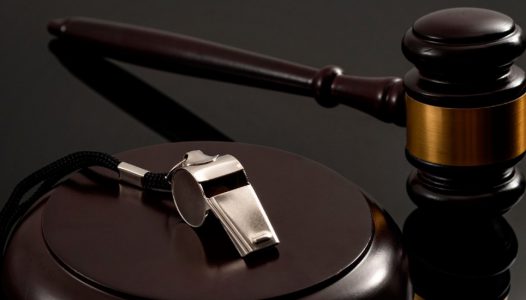by Mark Worth
Ten years ago the European Commission tersely said the idea of EU-wide whistleblower rules was out of the question. Today, the Commission is helping to lead the charge for stronger rights for people who report corruption. For evidence of this sharp turnaround, one need look no further than the Commission’s decision to escalate its infringement action against four EU countries that are tardy in passing whistleblower protection laws. On 29 September the Commission warned Austria, Belgium, Romania and Slovenia that they are “failing to fulfil their obligations” to comply with new rules.
When the EU passed a whistleblower rights Directive in 2019, it gave member countries more than two years to pass new laws. Only five countries met the December 2021 deadline – Denmark, Lithuania, Malta, Portugal and Sweden. Five others have since passed new laws. This leaves 17 countries on the verge of being a full year behind Brussels’ timeline.
In stepping up its enforcement action, the Commission decided the inaction by Austria, Belgium, Romania and Slovenia has been particularly egregious. EU officials gave the countries two months to respond to their order, known as a “reasoned opinion.” If the Commission isn’t pleased with their answers, it could take the countries to the EU Court of Justice, where they could be fined.
The EU Directive was seen by many anti-corruption advocates and experts as a major step toward finally granting free-speech rights to crime witnesses. Though international organisations including the UN, OECD and Council of Europe long have endorsed whistleblower protection, EU countries have lagged behind many regions, including the Balkans, Asia-Pacific and parts of Africa.
Even when these new European laws kick in, however, whistleblowers should not feel totally safe and secure. Most of the new measures lack specific mechanisms to protect employees from retaliation and compensate them for lost wages and other damages if they are fired, Whistleblower Network News reported. Further, the laws are silent on how an employee can receive legal status as a protected whistleblower, nor do they provide specific guidance for courts that likely will hear retaliation cases.
The first test case of the first new law ended badly for the whistleblower. This past January, Denmark’s Supreme Court ruled against a city employee in Copenhagen who exposed problems with the payment of retirement and disability benefits. After she revealed the problems to a Danish newspaper, she was fined 5,000 kroner (about €670) and given a suspended 10-day jail sentence. Citing a loophole in Denmark’s new whistleblower law, the Supreme Court ruled “it was not necessary” for her contact the media – even though her managers ignored her concerns. Judges upheld a lower court’s ruling, leaving the 69-year-old woman a convicted criminal.
Five months later, a group of public officials called for EU countries to enact new laws. “Europe is currently at a crossroad in the defence of the principles that inspire the rule of law as opposed to authoritarian models,” the Network of European Integrity and Whistleblowing Authorities said in its Barcelona Declaration. EU countries should “strengthen their anti-corruption and integrity agenda” by setting up a “robust whistleblower protection system,” said the group, comprised of 29 public agencies from 21 countries.
The author, Mark Worth, is an Executive Director at Whistleblowing International. He is also an Executive Director at the European Center for Whistleblower Rights, a Senior Fellow for International Whistleblower Rights at Kohn, Kohn & Colapinto, and Co-coordinator at Southeast Europe Coalition on Whistleblower Protection.






